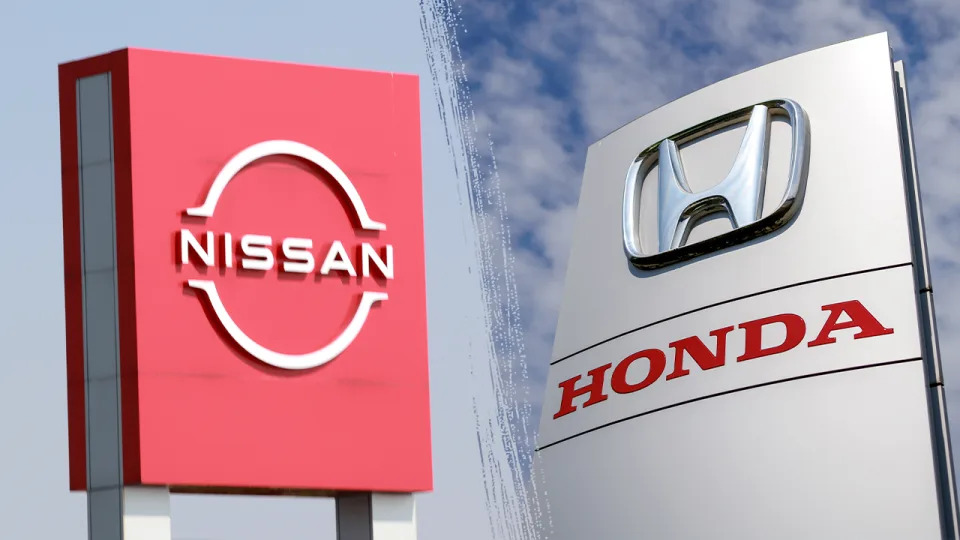Honda and Nissan are reportedly looking at the possibility of merging, sparking speculation about what the potential move could mean — but experts say the rumors of a partnership are not a surprise.
News of the merger talks, which was first reported by the Nikkei newspaper on Tuesday, comes as both Japanese auto giants struggle to compete with the largest global electric vehicle (EV) makers, including Tesla and Chinese automaker BYD.
While neither Honda nor Nissan has confirmed the merger discussions, Brian Moody, executive editor at Autotrader and Kelley Blue Book, predicted roughly a year ago that there would be more of these types of partnerships, because companies can pool resources and defray costs.
Moody told FOX Business in an interview that if a small brand says it is going to go all-electric that is one thing, but for a large company to do so is a huge undertaking that takes vast amounts of research and development. Honda and Nissan are the second- and third-largest auto manufacturers in Japan, respectively, with Toyota leading them both.
The respective market capitalizations of Honda and Nissan are roughly 5.95 trillion yen ($38.8 billion) and 1.17 trillion yen ($7.6 billion).
“A company like Honda might not be able to do that on their own, but at the same time, Honda has some pretty compelling products, so I feel like they both bring something important to the table,” Moody said.



